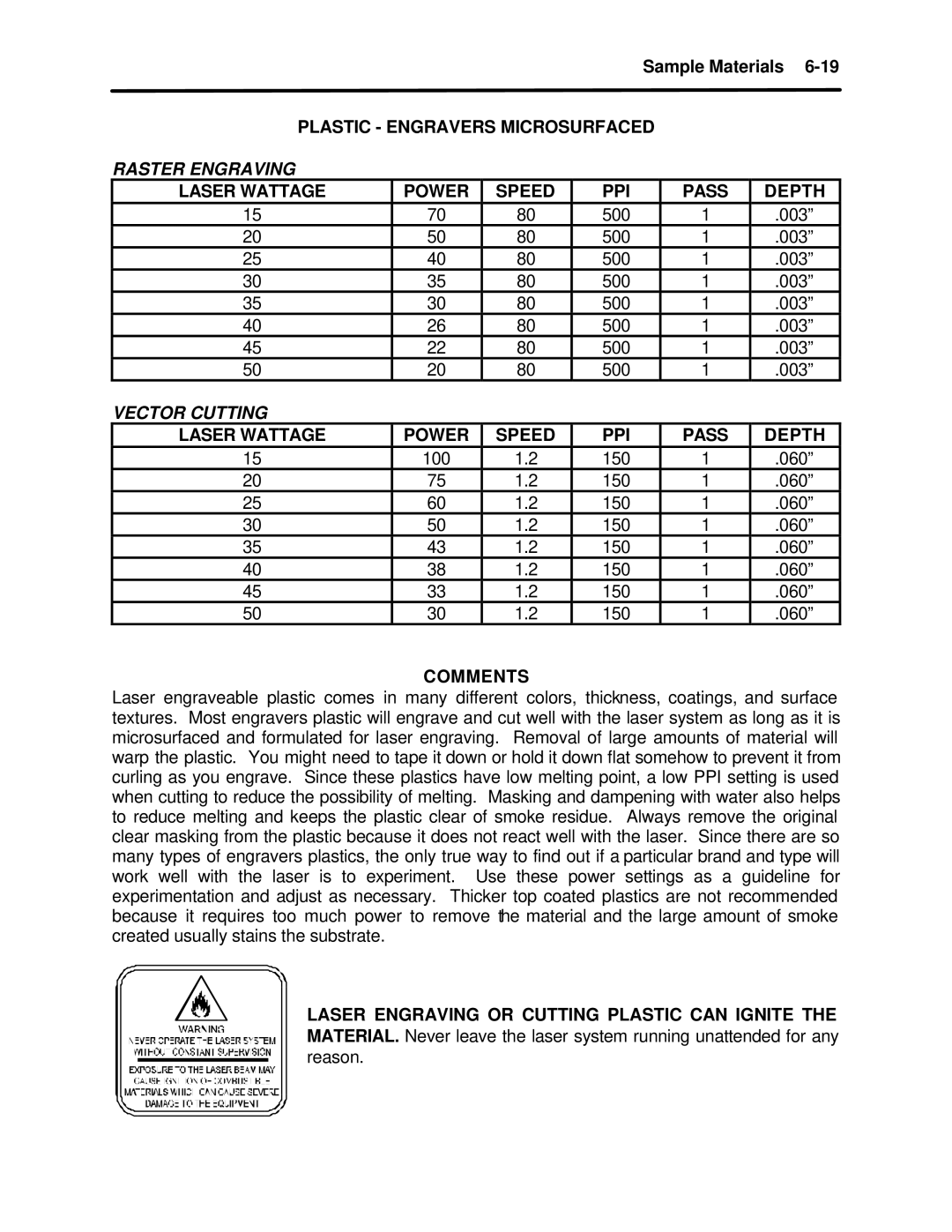
Sample Materials 6-19
PLASTIC - ENGRAVERS MICROSURFACED
RASTER ENGRAVING
LASER WATTAGE | POWER | SPEED | PPI | PASS | DEPTH |
15 | 70 | 80 | 500 | 1 | .003” |
20 | 50 | 80 | 500 | 1 | .003” |
25 | 40 | 80 | 500 | 1 | .003” |
30 | 35 | 80 | 500 | 1 | .003” |
35 | 30 | 80 | 500 | 1 | .003” |
40 | 26 | 80 | 500 | 1 | .003” |
45 | 22 | 80 | 500 | 1 | .003” |
50 | 20 | 80 | 500 | 1 | .003” |
VECTOR CUTTING |
|
|
|
|
|
LASER WATTAGE | POWER | SPEED | PPI | PASS | DEPTH |
15 | 100 | 1.2 | 150 | 1 | .060” |
20 | 75 | 1.2 | 150 | 1 | .060” |
25 | 60 | 1.2 | 150 | 1 | .060” |
30 | 50 | 1.2 | 150 | 1 | .060” |
35 | 43 | 1.2 | 150 | 1 | .060” |
40 | 38 | 1.2 | 150 | 1 | .060” |
45 | 33 | 1.2 | 150 | 1 | .060” |
50 | 30 | 1.2 | 150 | 1 | .060” |
COMMENTS
Laser engraveable plastic comes in many different colors, thickness, coatings, and surface textures. Most engravers plastic will engrave and cut well with the laser system as long as it is microsurfaced and formulated for laser engraving. Removal of large amounts of material will warp the plastic. You might need to tape it down or hold it down flat somehow to prevent it from curling as you engrave. Since these plastics have low melting point, a low PPI setting is used when cutting to reduce the possibility of melting. Masking and dampening with water also helps to reduce melting and keeps the plastic clear of smoke residue. Always remove the original clear masking from the plastic because it does not react well with the laser. Since there are so many types of engravers plastics, the only true way to find out if a particular brand and type will work well with the laser is to experiment. Use these power settings as a guideline for experimentation and adjust as necessary. Thicker top coated plastics are not recommended because it requires too much power to remove the material and the large amount of smoke created usually stains the substrate.
LASER ENGRAVING OR CUTTING PLASTIC CAN IGNITE THE MATERIAL. Never leave the laser system running unattended for any reason.
